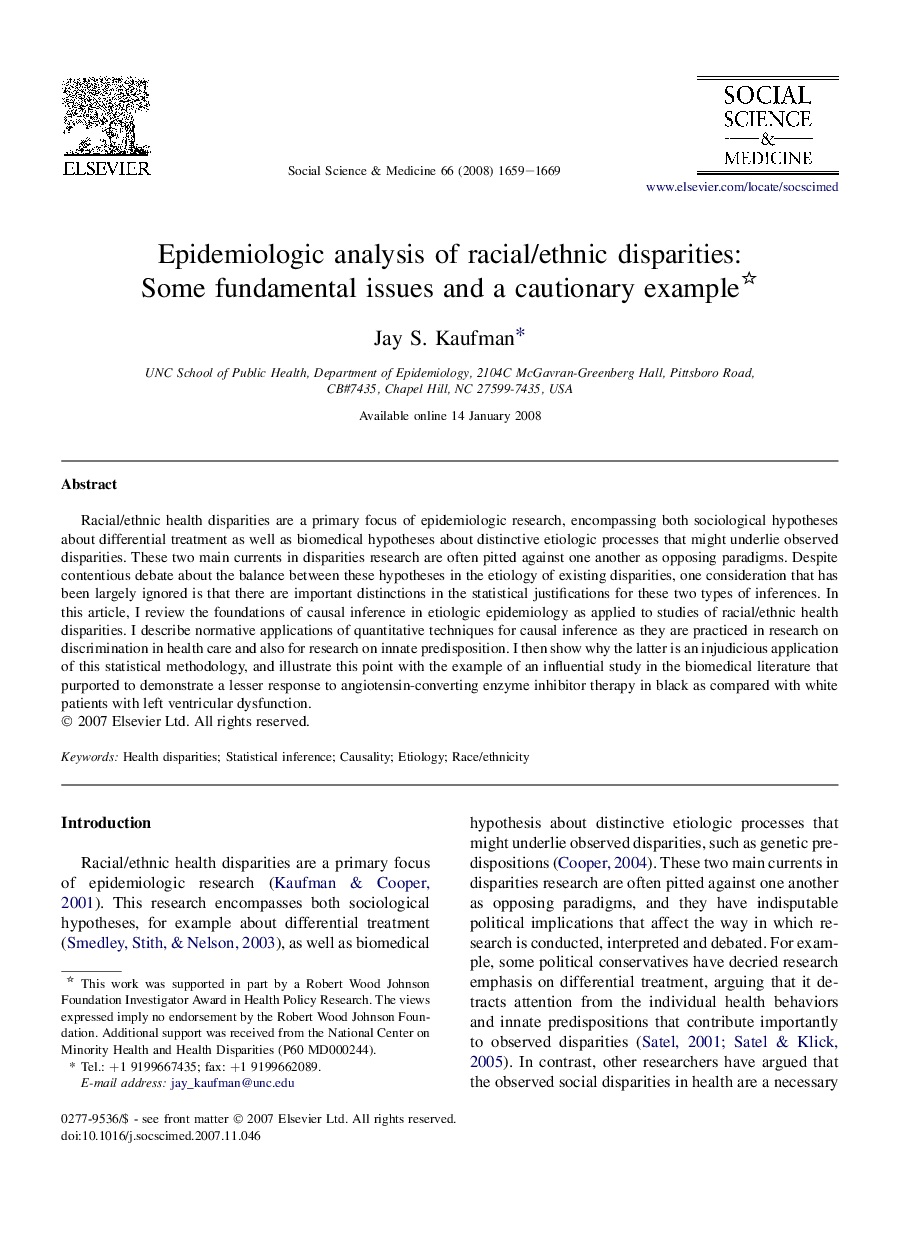| Article ID | Journal | Published Year | Pages | File Type |
|---|---|---|---|---|
| 953905 | Social Science & Medicine | 2008 | 11 Pages |
Racial/ethnic health disparities are a primary focus of epidemiologic research, encompassing both sociological hypotheses about differential treatment as well as biomedical hypotheses about distinctive etiologic processes that might underlie observed disparities. These two main currents in disparities research are often pitted against one another as opposing paradigms. Despite contentious debate about the balance between these hypotheses in the etiology of existing disparities, one consideration that has been largely ignored is that there are important distinctions in the statistical justifications for these two types of inferences. In this article, I review the foundations of causal inference in etiologic epidemiology as applied to studies of racial/ethnic health disparities. I describe normative applications of quantitative techniques for causal inference as they are practiced in research on discrimination in health care and also for research on innate predisposition. I then show why the latter is an injudicious application of this statistical methodology, and illustrate this point with the example of an influential study in the biomedical literature that purported to demonstrate a lesser response to angiotensin-converting enzyme inhibitor therapy in black as compared with white patients with left ventricular dysfunction.
